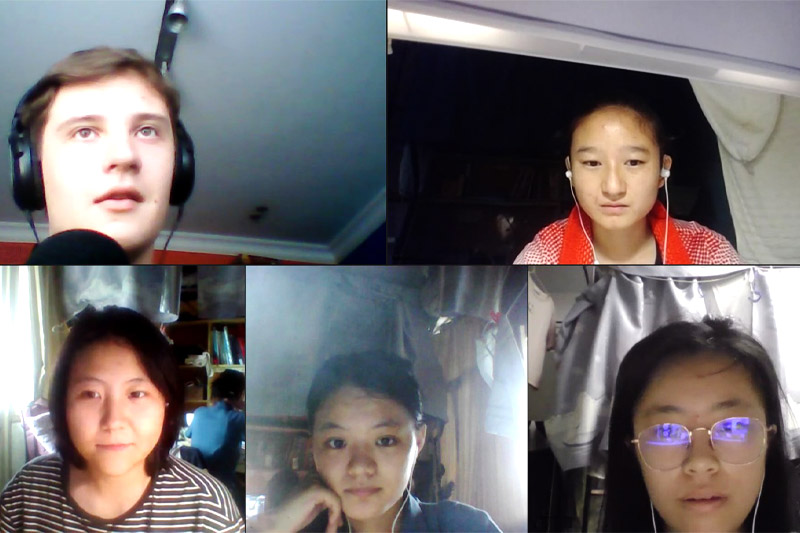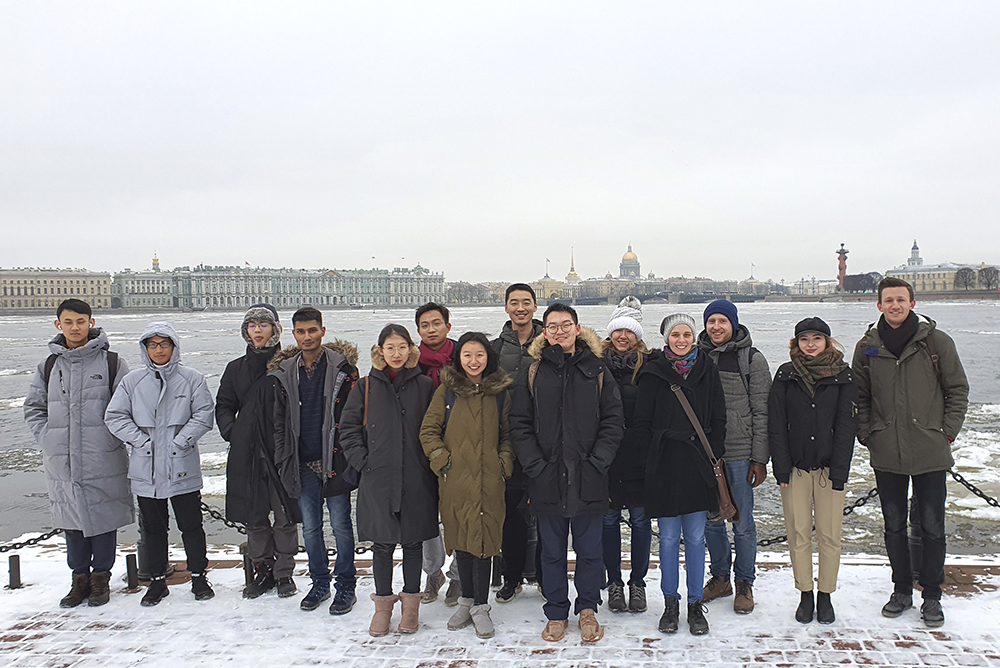Professor Tobias Wietler Spoke about his Favorite Movie Saga and why there is no Reason to be Afraid of Mistakes

Professor Tobias WIETLER loves science fiction and Star Wars series; he is sure that even the youngest children are able to understand science, and that not the number of memorized formulas is important for a student but the understanding of how physical processes are related. Tobias WIETLER, a visiting professor at many European universities, came to Polytechnic University for the fifth time, to lectures the students of the international Master’s degree program in «Microelectronics of Telecommunication Systems.» On his jubilee visit to the Polytechnic University, Professor WIETLER gave an interview to the SPbPU International Services, in which he stressed that one should not fear making mistakes.
- Professor WIETLER, in your opinion, at what age one can start studying science? Like physics, for example?
- I am quite sure that some scientific processes can be put in plain words to even very young children. I have two sons; the junior still is in kindergarten. Kids see a rainbow and want to know where the colorful stripes in the sky come from? Why, if you cover a glass of water with a piece of paper, put your palm on top and turn it over, the water remains in the glass, even if you remove your hand? Children keep asking questions. They are eager to find out how different things are related. And our task is to make sure that their interest would not vanish with the increase of years.
- What is your attitude to popularization of science?
- I believe that professors and teachers should charge with their enthusiasm not only university students, but also a broader audience. Making science interesting and accessible is another important task that we face. For example, the Leibniz University of Hannover has programs that include high school students. They learn the basics of scientific disciplines, implement their own projects. The time they spend in the classroom is a great investment in their own development, the motivation to go to university and, further on, into science. I know that there are similar projects at your university too..
- For how long have you been teaching? What disciplines do you teach?
- My discipline is called “Physical Foundations of Integrated Circuits Manufacturing Technology.” We learn with students how to create electronic gadgets, what underlies electronic devices, how to make these devices work inside smart phones, and how to simplify and optimize their making. I’ve been teaching technologies and physics they are based on for over 10 years.
- Do you force your students to bone up formulas at your classes?
- I am no big fan of long formulas and do not insist on memorizing them by hundreds. The main thing is not a memorized formula, but an understanding of how it works. I try to help students understand the connection between different technological processes, their principles and installations, so that in the future this would help them to make correct calculations and accurate forecasts.
- How do you usually teach?
- I alternate classic lectures and classes in a dialogue format. I find it important that students could express their thoughts. I might propose to sort out a problem, which they first discuss in groups and then come up with a solution. It is not always easy to immediately answer the question of a professor. I know cases when a person forgot the answer because he was dead worried! But when you first discuss a task within a group and then come up with an answer, the anxiety is a great deal less. And the less you worry, the sooner you will understand that there is nothing wrong with an incorrect answer: everyone can make mistakes, and we gain experience and knowledge through making mistakes.
- What are your impressions about Polytechnic University students, about our university as a whole?
I am very impressed with Polytechnic University. It is nice to see how international educational programs are developing, and how students are involved in the educational process. They are open to everything new, ready to learn and aim to gain knowledge. That’s a great thing.

- What does a scientist feel when watching science fiction? Do you have a favorite fiction movie?
- I truly love science fiction. It may be rather trivial, but one of my favorite movie shooters is Star Wars. And I love the “Star Trek” too. These are genuine classic films among all science fiction movies. As a scientist, I do notice un-academic moments. But I'm not watching movies for those! I do not expect all films to be literate from the viewpoint of science; much more important is how the story is revealed, how exciting is the plot. I think the idea of science fiction films is that even the most notorious skeptics would believe in the reality of anything during the showing of a movie. What if it inspires someone to accomplish what others consider unattainable, and a new scientific breakthrough happens?
- What would you advise students aspiring for success?
I advise everyone, without exception, to go to study abroad for a certain period of time, to begin communicating with foreign students and teachers. It seems to me that communication with the international academic community can significantly affect a career. Studying abroad will help you see the life from a different point of view, get to know a different culture, learn to work in an international team. By the way, our universities have all the possibilities for this.
- Professor WITLER, thank you for an interesting interview! We wish you professional success and hope to see you at Polytechnic University again!
Prepared by International Academic Cooperation Department. Text: Olga DOROFEEVA
For reference:
The international Master’s degree educational program "Microelectronics of Telecommunication Systems" is implemented on the basis of the SPbPU Institute of Physics, Nanotechnology and Telecommunications. The coordinator of the program is Doctor of Technical Sciences, Professor of the Higher School of Applied Physics and Space Technologies A.S. KOROTKOV, and the list of partners comprises Hamburg University of Technology (TUHH), Fraunhofer Institute for Integrated Circuits (Fraunhofer IIS), Leibniz University of Hannover (LUH), Ekol Polytechnique, Czech Technical University (CTU).



